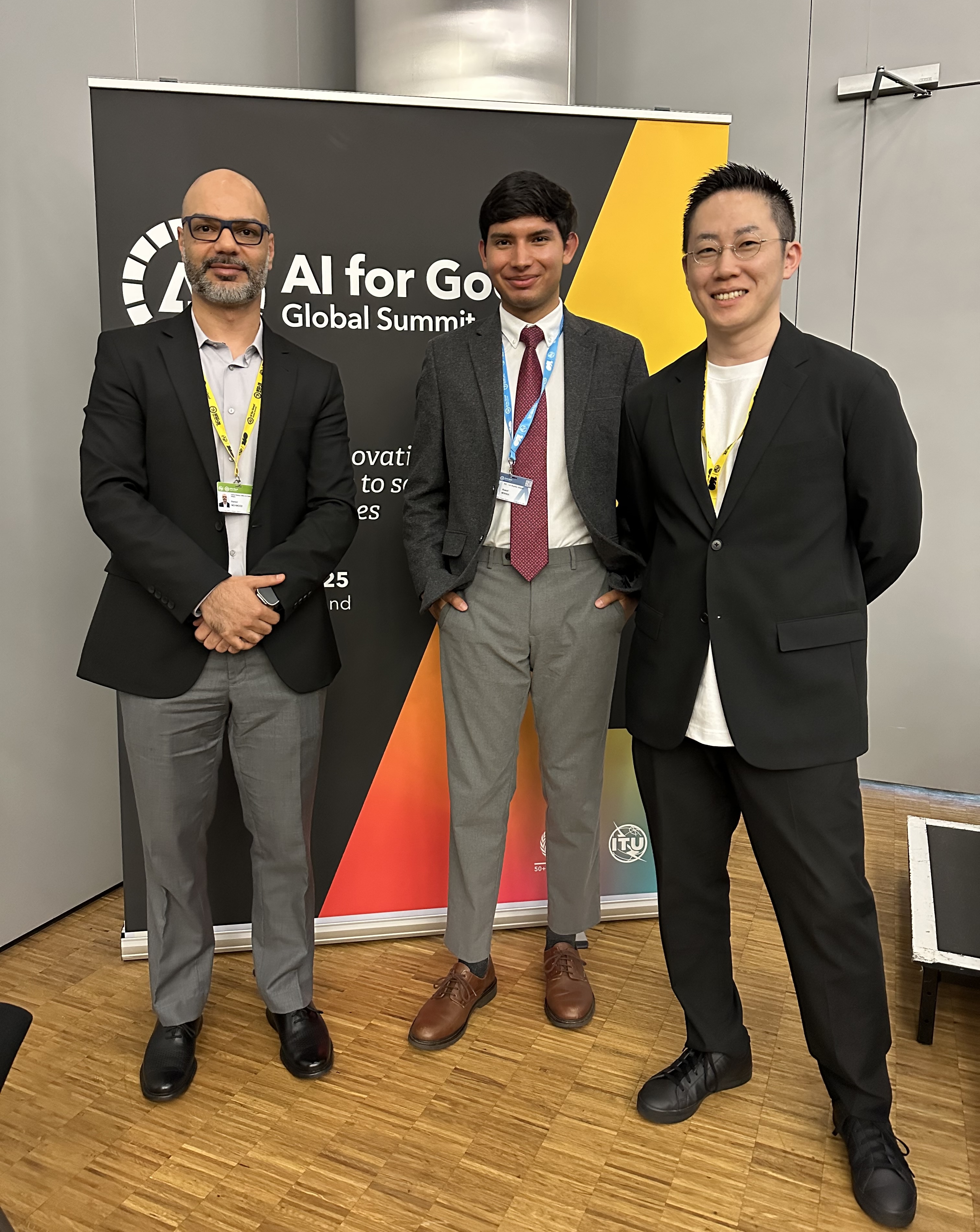UN-SPIDER Highlights GeoAI Innovations at AI for Good Global Summit 2025
Geneva, Switzerland – July 2025 — UN-SPIDER joined global innovators and UN agencies at the 2025 AI for Good Global Summit, organized by the International Telecommunication Union (ITU) alongside over 40 United Nations partners. With more than 50,000 in-person participants, the summit served as the UN’s key platform to demonstrate how AI can help achieve the Sustainable Development Goals. UN-SPIDER used the opportunity to highlight how satellite-based technologies combined with AI can improve disaster risk reduction, reaffirming its commitment to making space-derived solutions accessible and actionable for all.
The UN-SPIDER team contributed to three workshops and a high-level event, focusing on AI-driven geospatial tools to strengthen resilience in vulnerable communities. In a session focusing on “Human-Centered AI for Disaster Risk Reduction” the Tonga digital twin pilot was highlighted, which combines satellite imagery and AI to simulate floods scenarios. This tool supports damage assessment and evacuation planning, with plans to integrate real-time data for early warnings, community engagement, and infrastructure improvements.

Furthermore, UN-SPIDER launched the newly developed GeoAI Compendium, featuring 22 real-world use cases from 9 Regional Support Offices across six themes. UN-SPIDER represenatives emphasized the need to localize foundational AI models using locally relevant data and delivery methods to improve disaster preparedness and support inclusive development, especially in the Global South.
UN-SPIDER also joined the “AI for Space” session, presenting a digital twin initiative in Trinidad and Tobago, showing how AI, Earth observation, and global compute power are transforming disaster risk management in the Global South. Highlighting the new GeoAI Compendium, six key lessons on localizing AI models, including the need to tailor outputs to local contexts, languages, and formats for decision-makers were shared.
Additionally, UN-SPIDER participated in the AI Skills Coalition networking lunch, joining representatives from UN agencies, governments, companies, and civil society to discuss ways to expand access to AI education and training around the world. The event reflected the summit’s broader message: building a responsible AI future requires global cooperation, inclusion, and shared responsibility.
As part of its takeaways from the summit, UN-SPIDER explored potential collaboration with ITU’s “AI for Resilience” and “Virtual Worlds” initiatives, which focus on using AI responsibly for disaster preparedness and ethical virtual spaces.
Looking ahead, UN-SPIDER plans to expand its digital twin pilot projects to more small island developing states and least developed countries. This will support global cooperation on AI and continue its role in promoting space-based tools for disaster risk reduction.
The GeoAI Compendium “Mapping Disaster Resilience: GeoAI Best Practices from the UN-SPIDER Network” is available for download here: Mapping Disaster Resilience: GeoAI Best Practices from the UN-SPIDER Network | UN-SPIDER Knowledge Portal

